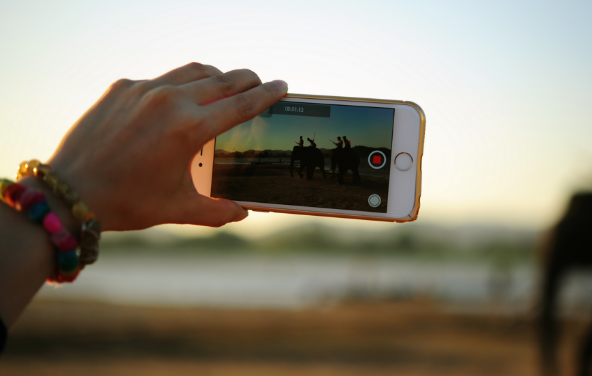BY STEPHANIE BUSARI
Social media has become the primary form of media in Africa. One only has to see how some governments on the continent threatened by it, routinely block it and seek to curtail its use.
As we speak there is currently an internet blockade in English speaking Cameroon and a campaign has started to #bringbacktheinternet.
What’s undeniable is the power that social media has given Africans to tell their own stories. Eighty percent of all content created online is from users and storytelling has become largely democratised.
CNN Africa has social at its heart and at the recent social media week, we tried to explore how this collective force can be used to power African storytelling, especially through live videos such as Facebook Live, Snapchat, Instagram stories and more.
At the Lagos Social Media Week, CNN hosted some top panelists such as Jadesola Osiberu, the creative director of GTB Bank’s Ndani TV, Tomiwa Aladekomo of Ventra Media and popular YouTuber Yemisi Ogunsanya, who is more popularly known as Sisi Yemmie.
During the hour long conversation packed full of interesting insights and participation from the audience, the panel agreed that live video was being used increasingly on the continent but there was still a long way to go. They also cited data constraints as a key reason why uptake was not as wide currently. Asked whether there should be more of a role for community activism using live video, they pointed out that fear or security risks could also be a factor in stopping citizens from engaging in this action.
Here are nine of the key takeaways from the panel on how Africans can use live video to transform their own storytelling.
- People experiencing news events can tell their own stories better than news organizations.
- Live video gives ordinary people the chance to share breaking news stories as they are happening.
- Content creators like comedians, filmmakers and entertainers can use it to push their work to a global audience.
- Live video allows audiences across the world to participate in events they wouldn’t have had the chance to attend in real time – concerts, seminars.
- Africans now have the opportunity to control their own narrative. They no longer need the gatekeepers.
- Live video helps Africans take Africa to the world.
- Big brands are still trying to figure out live video but personal brands are freely hopping into it.
- Data is one of the biggest challenges for live video in Africa.
- Security is a concern for people who want to use live video for activism.
Copyright 2024 TheCable. All rights reserved. This material, and other digital content on this website, may not be reproduced, published, broadcast, rewritten or redistributed in whole or in part without prior express written permission from TheCable.
Follow us on twitter @Thecablestyle

